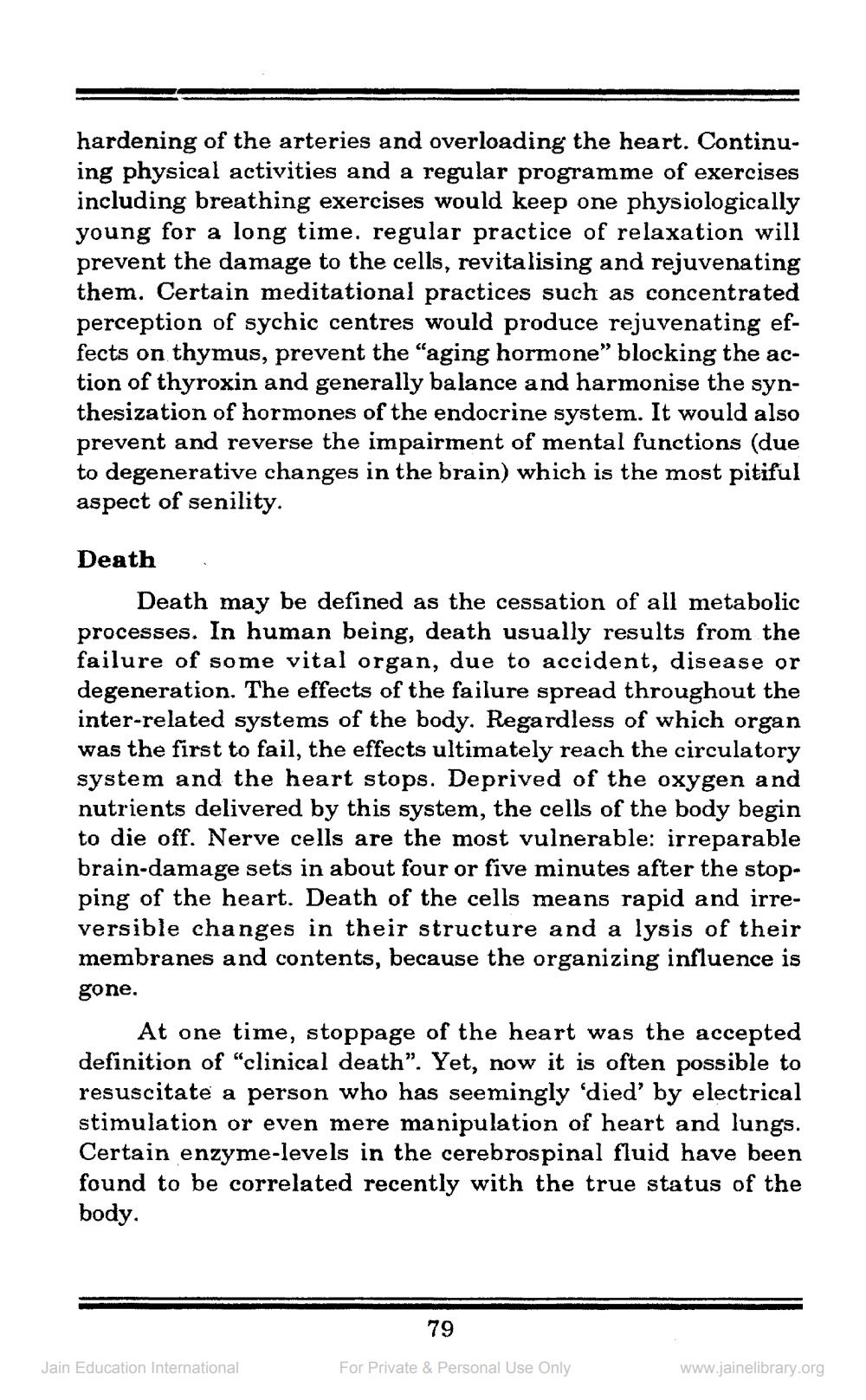________________
hardening of the arteries and overloading the heart. Continuing physical activities and a regular programme of exercises including breathing exercises would keep one physiologically young for a long time. regular practice of relaxation will prevent the damage to the cells, revitalising and rejuvenating them. Certain meditational practices such as concentrated perception of sychic centres would produce rejuvenating effects on thymus, prevent the "aging hormone" blocking the action of thyroxin and generally balance and harmonise the synthesization of hormones of the endocrine system. It would also prevent and reverse the impairment of mental functions (due to degenerative changes in the brain) which is the most pitiful aspect of senility.
Death
Death may be defined as the cessation of all metabolic processes. In human being, death usually results from the failure of some vital organ, due to accident, disease or degeneration. The effects of the failure spread throughout the inter-related systems of the body. Regardless of which organ was the first to fail, the effects ultimately reach the circulatory system and the heart stops. Deprived of the oxygen and nutrients delivered by this system, the cells of the body begin to die off. Nerve cells are the most vulnerable: irreparable brain-damage sets in about four or five minutes after the stopping of the heart. Death of the cells means rapid and irreversible changes in their structure and a lysis of their membranes and contents, because the organizing influence is gone,
At one time, stoppage of the heart was the accepted definition of "clinical death”. Yet, now it is often possible to resuscitate a person who has seemingly died' by electrical stimulation or even mere manipulation of heart and lungs. Certain enzyme-levels in the cerebrospinal fluid have been found to be correlated recently with the true status of the body.
79
Jain Education International
For Private & Personal Use Only
www.jainelibrary.org




